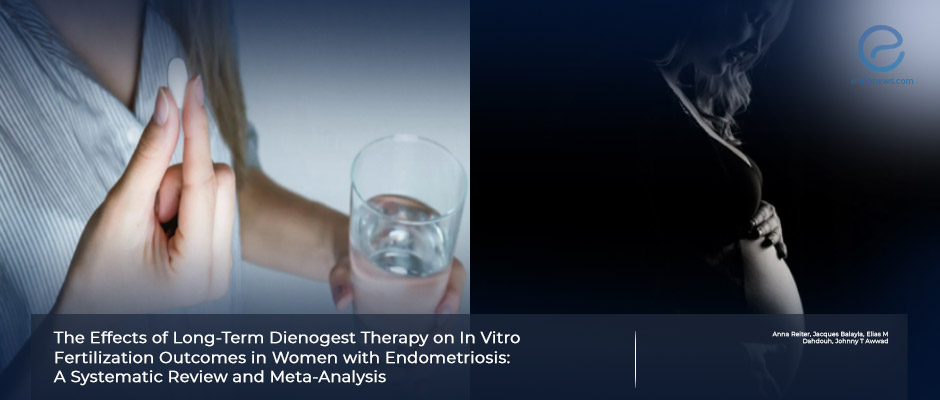Long-term Dienogest Treatment and the Chance of Conceiving With IVF
Apr 9, 2024
It is still uncertain whether prolonged dienogest before IVF affects pregnancy and live birth rates in women with endometriosis.
Key Points
Highlights
- Long-term treatment with dienogest before in vitro fertilization does not seem to have an effect on pregnancy or live birth rates in patients with endometriosis.
Importance:
- This finding raises doubts about the usefulness of the treatment before IVF for increasing pregnancy rate.
What’s done here:
- Researchers conducted a literature review and meta-analysis of studies comparing the effect of long-term dienogest treatment before IVF to no pre-treatment and pre-treatment with GnRH agonists in women with endometriosis.
Key results:
- There were no differences in terms of live birth rate and clinical pregnancy rate between women who received prolonged dienogest treatment before IVF and those who did not.
- There were also no differences in live birth or clinical pregnancy rates between women with endometriosis who received long-term dienogest treatment and those who received long-term GnRH agonist therapy before IVF.
Lay Summary
It is not clear whether long-term treatment with dienogest before in vitro fertilization (IVF) affects pregnancy and live birth rates in women with endometriosis, according to a new study published in the Journal of Obstetrics and Gynaecology Canada.
“Given limited data and very low evidence quality, doubts arise about the benefits of long-term dienogest pre-treatment before conventional IVF in endometriosis patients,” the authors of the study concluded.
To assess the efficacy of dienogest in patients with endometriosis undergoing IVF, the team of researchers led by Dr. Johnny T. Awwad from Women's Service, Sidra Medicine in Doha, Qatar and the Department of Obstetrics and Gynecology, American University of Beirut Medical Center in Beirut, Lebanon conducted a systematic review and meta-analysis of the literature.
They selected randomized clinical trials and observational studies that compared the effect of extended dienogest pre-treatment, no pre-treatment, or pre-treatment with gonadotropin-releasing hormone (GnRH) agonists in women with endometriosis undergoing IVF. The researchers analyzed the live birth rate, clinical pregnancy rate, i.e. pregnancy confirmed by transvaginal ultrasound with the presence of amniotic sac, embryo, and fetal heart beat 3 to 4 weeks after embryo transfer, number of oocytes collected, miscarriage rate, and gonadotropin consumption. A total of 191 publications were found and five studies that included a total of 723 participants were analyzed.
There were no differences in terms of live birth rate and clinical pregnancy rate between women who received prolonged dienogest treatment before IVF and those who did not. They also did not find that prolonged dienogest treatment had any meaningful impact on live birth rates and clinical pregnancy rates compared to long-term GnRH agonist therapy before IVF.
Dienogest is an oral contraceptive that combines estrogen and progestin. It can be used to alleviate the symptoms of endometriosis and may also be used to increase the success rate of IVF.
Research Source: https://pubmed.ncbi.nlm.nih.gov/38176680/
birth control pill in vitro fertilization IVF live birth rate pregnancy rate infertility dienogest

